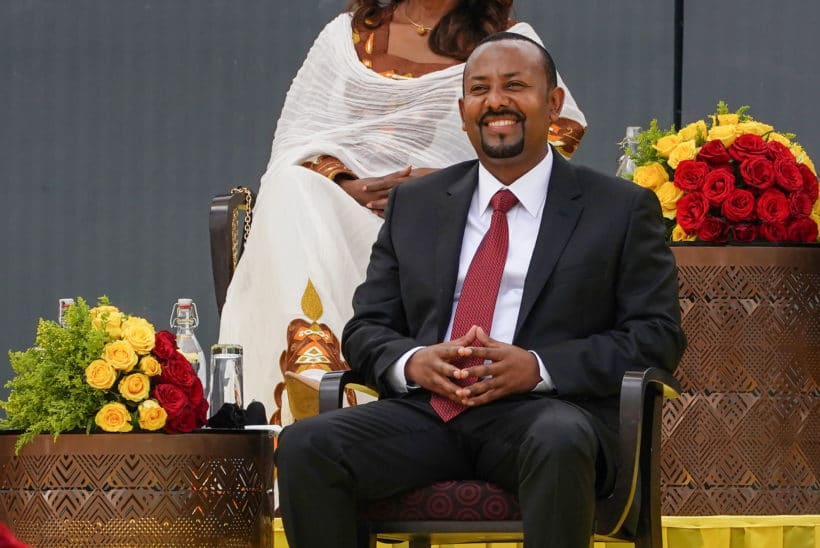
ADDIS ABABA, Oct 4 (Reuters) – Ethiopian Prime Minister Abiy Ahmed was sworn in for a new five-year term on Monday, telling a crowd of thousands he would protect the country from foreign interference, amid global criticism over the war in the northern region of Tigray.
His party scored a landslide victory in June’s election, cementing his power domestically despite international concern over his government’s handling of the conflict.
After parliament confirmed his appointment, between 30,000 and 40,000 people attended a public ceremony – unusual in Ethiopia – in the capital Addis Ababa.
Abiy spoke from a dais covered in yellow carpet in the newly refurbished Meskel Square, where brand new lights and stadium-style benches sit next to a crumbling museum dedicated to the murder and torture victims of a previous regime.
Read more: Kenyan president urges Ethiopia to open up mobile money market
In his speech, Abiy denounced the leadership in the northern region of Tigray, where rebellious forces are battling the central government and where the United Nations says hundreds of thousands of people are experiencing famine due to a government blockade of aid. The government denies it is preventing aid deliveries.
Abiy’s speech offered little hint as to whether he would pursue an offensive to claw back territory taken by Tigrayan forces. “In order to narrow our differences we will have a national dialogue,” he said, while also promising “a capable security and intelligence force will be built”.
Abiy also repeated warnings that Ethiopia would not accept foreign interference in its internal affairs.
Conflict broke out in Tigray 11 months ago between federal troops and forces loyal to the Tigrayan People’s Liberation Front (TPLF), the political party that controls Tigray. Thousands have died and more than 2 million people have been forced to flee their homes.
On Thursday, Ethiopia announced it was expelling seven senior U.N. officials, accusing them of diverting aid and communication equipment to the TPLF, failing to demand the return of aid trucks deployed to Tigray, violating security arrangements and spreading misinformation.
Read more: U.N. Security Council to discuss Ethiopia expulsion of U.N. staff
The United Nations said on Monday that it stands by the neutrality and professionalism of its staff and again reiterated that it does not accept Ethiopia’s declaration that the officials are personae non gratae.
However, U.N. spokesman Farhan Haq said the U.N. officials had “been moved from the country to ensure their safety.”
The United States has condemned the expulsions and threatened unilateral sanctions against those who obstructed humanitarian efforts.
“It is critical that these individuals be allowed to return to Ethiopia in order to carry out their important life-saving work and duties,” State Department spokesman Ned Price said of the U.N. officials on Monday.
Abiy was appointed prime minister by the then-governing coalition in 2018 and promised political and economic reforms.
Within months of taking office, he lifted a ban on opposition parties, released tens of thousands of political prisoners and took steps to open up one of Africa’s last untapped markets. But rights groups say those freedoms are now being rolled back.
(Reporting by Dawit Endeshaw, additional reporting by Michelle Nichols in New York and Daphne Psaledakis in Washington; Writing by Giulia Paravicini; Editing by Katharine Houreld, Alex Richardson, Mark Heinrich and Sonya Hepinstall)

